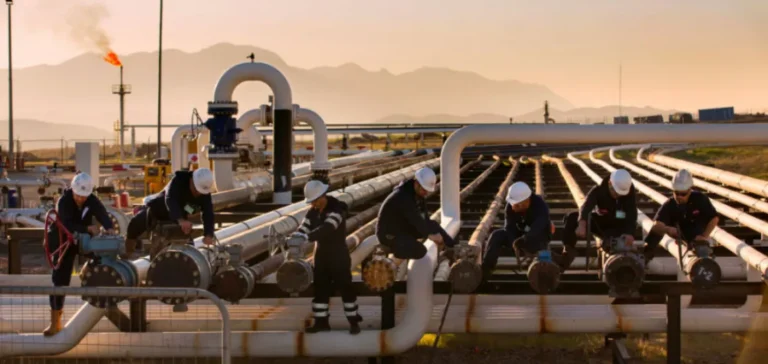Turkey has submitted to Iraq a draft agreement to renew and expand their energy partnership, following Ankara’s decision to terminate the existing Kirkuk-Ceyhan pipeline agreement. This initiative comes as both countries seek to overcome a diplomatic and commercial deadlock resulting from the halt of the main pipeline connecting northern Iraq to the Mediterranean.
Negotiations on a strategic partnership
The Iraqi Ministry of Oil stated that its teams are currently reviewing the draft agreement proposed by Turkey, while negotiations continue in order to reach a mutually beneficial deal. According to information provided, the document foresees an extension of cooperation beyond oil, now including natural gas, petrochemicals and electricity. This approach aims to structure energy exchanges between Baghdad and Ankara over the medium and long term.
The closure of the Kirkuk-Ceyhan pipeline, with a capacity of 1.6 mn barrels per day, followed an arbitration ruling ordering Turkey to pay $1.5bn for unauthorised Iraqi exports carried out between 2014 and 2018. The legal dispute continues with an appeal underway, while Turkey expresses its intention to reactivate the pipeline and make it a major regional infrastructure.
The pipeline at the centre of regional ambitions
The Turkish government has announced the official end of the initial agreement, dating from the 1970s, effective from July 27, 2026. At the same time, Ankara has reaffirmed its willingness to reopen the pipeline, already technically ready according to authorities, although discussions between the Iraqi central government, the Kurdistan Regional Government and independent producers have not allowed progress on export allocation.
A Turkish official specified that Turkey has invested significantly in the maintenance of the pipeline, highlighting its strategic role within regional integration projects, including the “Development Road”. This commercial corridor, linking the Iraqi port of Basrah to the Turkish border and then to Europe, provides an opportunity to extend the pipeline further south and increase energy flows.
Prospects for the oil and gas sectors
The initial funding for the Development Road was allocated by Baghdad in 2023, according to authorities, and now features among the axes of cooperation proposed by Turkey. If realised, this development would allow the region’s supply sources to be diversified while structuring new commercial routes.
A Turkish representative assessed that the revival of the pipeline within the framework of a modernised agreement would represent a major step for the region, stating that the project’s details remain to be defined with the Iraqi parties. The conclusion of a new agreement would give oil and gas operators increased visibility over the export framework via the Turkish corridor, as energy needs in Europe and the Middle East continue to rise.






















